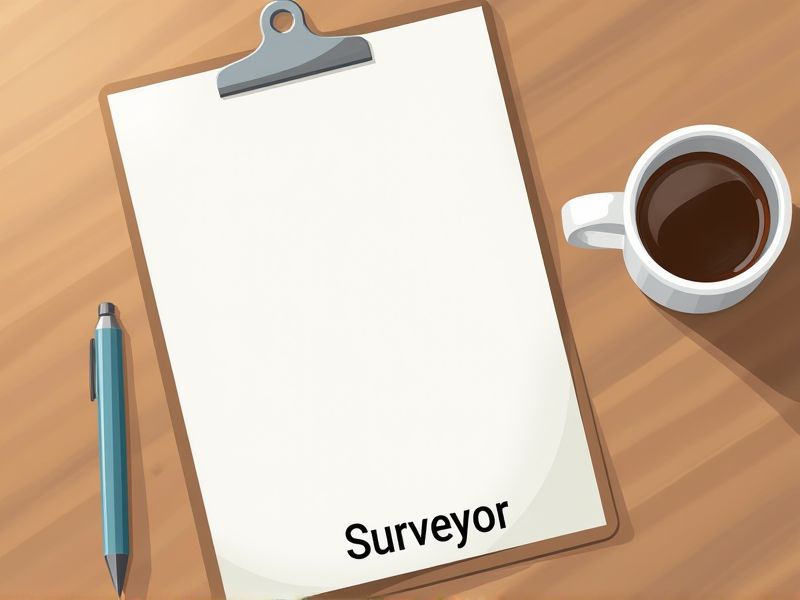
Surveyors play a critical role in land development, infrastructure projects, and property management, requiring precise skills and adherence to regulatory standards. Certifications authenticate the proficiency of surveyors, ensuring accurate measurements that prevent costly errors in planning and construction processes. As the industry evolves, advanced technology and methodologies necessitate continuing education to maintain competency in the field. Here are key certifications you might need as a surveyor.
Professional Land Surveyor (PLS)
The Professional Land Surveyor (PLS) ensures accuracy in mapping and boundary identification, preventing potential legal disputes over land divisions. Complex geographic data requires a PLS to interpret and validate topographical variations accurately. Property development involves regulatory compliance, which a PLS facilitates by providing certified documentation. Construction projects depend on PLS expertise to ensure structures are built on the correct location, avoiding costly errors.
Certified Survey Technician (CST)
Certified Survey Technicians provide verifiable skills and competencies, which help ensure high standards in surveying projects. Their certification helps reduce errors and increases accuracy, leading to more reliable data collection. Surveyors benefit from employing CSTs as it ensures adherence to industry norms and best practices. Trust in certified professionals enhances the credibility and reputation of survey firms.
GIS Professional (GISP)
The GIS Professional (GISP) credential enhances a surveyor's capability to integrate complex spatial data, which improves accuracy in mapping and planning projects. It ensures that surveyors possess up-to-date skills in geographic information system technologies, aligning their practice with industry standards. GISP certification demonstrates a commitment to ethical practices and professional development, which can increase client trust and expand potential business opportunities. It also opens access to a network of GIS professionals, fostering collaboration and knowledge exchange.
FAA Part 107 Remote Pilot Certificate
The FAA Part 107 Remote Pilot Certificate is required for surveyors using drones commercially due to regulations governing unmanned aircraft operations in the U.S. Obtaining this certification ensures the surveyor possesses the necessary aeronautical knowledge and understands safety protocols, reducing the risk of airborne incidents. The certificate enables legal use of drones for data collection, enhancing surveying efficiency and accuracy. Compliance with FAA regulations can prevent legal complications and potential fines for unauthorized drone use.
Certified Photogrammetrist (ASPRS)
Certified Photogrammetrists (ASPRS) play a crucial role in ensuring the accuracy and reliability of spatial data, which directly affects the precision of survey outcomes. Possessing advanced skills in interpreting aerial imagery and remotely sensed data, these professionals enhance a surveyor's ability to create detailed and precise maps. Certification validates their expertise, building trust with clients and stakeholders who rely on the integrity of survey data. Incorporating a Certified Photogrammetrist into a surveying team often leads to increased data quality, directly impacting project success and efficiency.
Certified Geomatics Technician (CGT)
Certified Geomatics Technicians (CGT) enhance surveying accuracy by integrating advanced geospatial technology and precise measurements. Their certification ensures adherence to industry standards, thereby reducing errors in data collection. Surveyors benefit from their expertise in interpreting complex spatial data, improving project planning and execution. Demand for CGTs arises as geographic information systems (GIS) become increasingly essential in land development and urban planning.
AutoCAD Certified Professional
Obtaining an AutoCAD Certified Professional credential equips a surveyor with advanced skills in CAD software, directly enhancing their precision in drafting and design tasks. This proficiency ensures efficient workflow and minimizes errors in creating technical drawings required for survey documentation. Employers often prefer certified professionals as it demonstrates a verified level of expertise, which can lead to improved job prospects and career advancement. The certification can result in increased trust and confidence in the surveyor's abilities from clients and colleagues.
Building Information Modeling (BIM) Certification
Surveyors with Building Information Modeling (BIM) Certification enhance project accuracy by integrating detailed digital representations of physical structures. Certification signifies proficiency in using BIM software, leading to improved communication and collaboration with architects and engineers. BIM skills allow surveyors to contribute to cost estimation and scheduling, optimizing resource allocation. Surveyors can stay competitive in a rapidly advancing industry, meeting the growing demand for technologically adept professionals.
Construction Surveying Specialist Certification (CSSC)
The Construction Surveying Specialist Certification (CSSC) signifies a surveyor's expertise in accurately translating project plans to real-world applications, reducing errors in construction projects. When construction projects require high precision, possessing the CSSC ensures that a surveyor has undergone rigorous training and assessment, raising confidence among stakeholders. Having the certification often leads to improved job prospects and potential salary increases, as employers value verified skill sets. The CSSC also emphasizes staying updated with current technologies and methodologies, promoting continuous professional development for surveyors.
Certified 3D Laser Scanning Technician
Certified 3D Laser Scanning Technicians are needed for surveyors because they provide high-precision data, which enhances the accuracy of spatial measurements. Their expertise speeds up the data collection process, reducing time spent in the field and improving project timelines. They ensure data integrity through standardized procedures, which minimizes errors and increases reliability. Their skills in utilizing advanced technology support the creation of detailed models, which improve planning and decision-making in various projects.
Summary
When you obtain certifications as a surveyor, employers are likely to view you as more credible and competitive. Certifications demonstrate your commitment to enhancing skills, which can lead to more job opportunities and potentially higher salaries. With certified expertise, your confidence in handling complex projects and modern technology increases. Clients and employers may prefer working with you, perceiving you as a skilled professional who adheres to industry standards.
